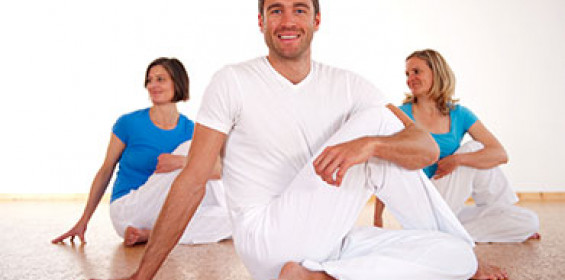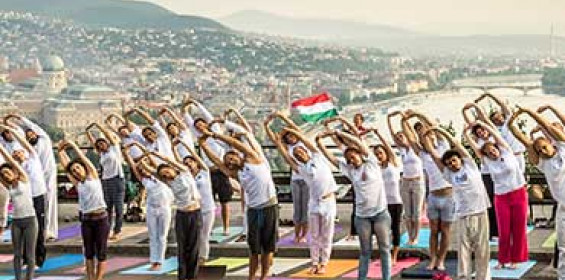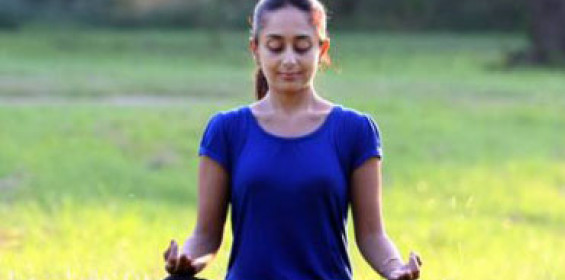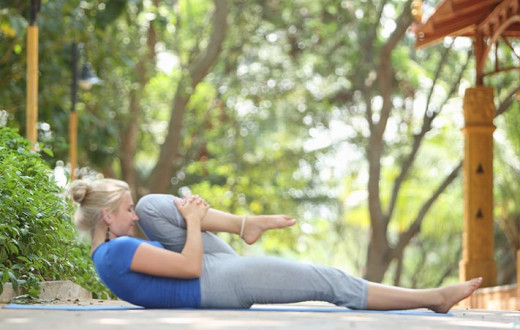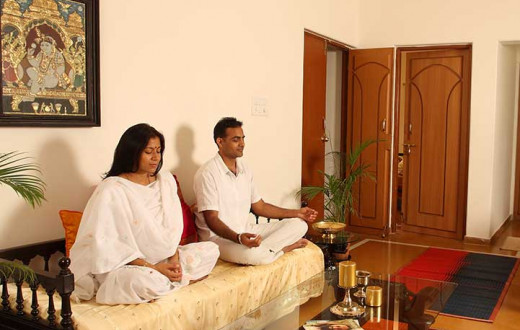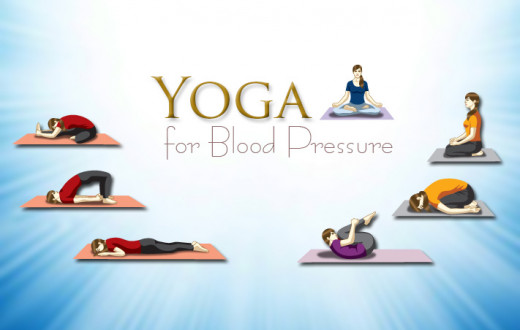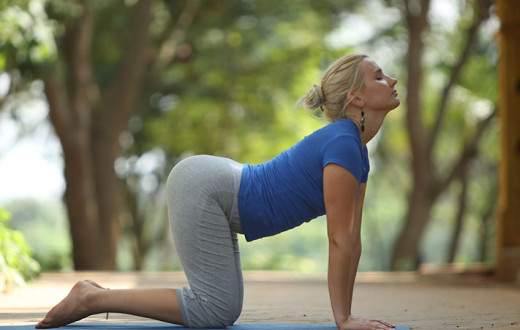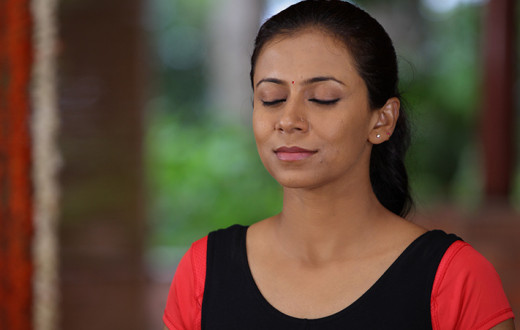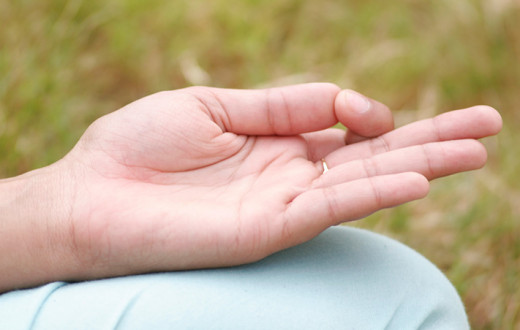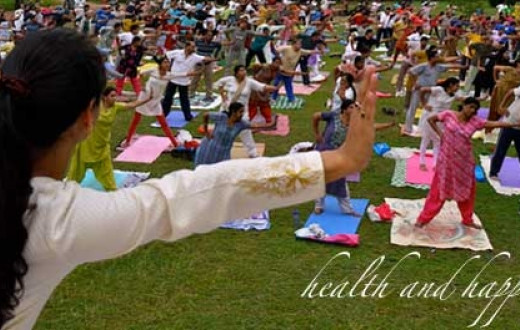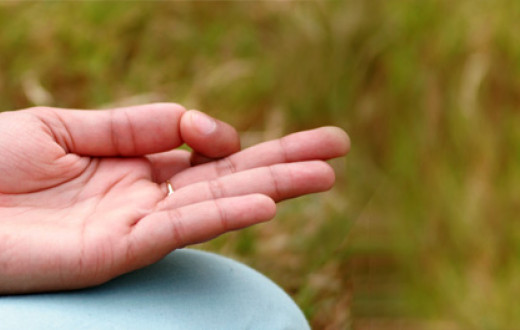Swimming is perhaps the only full-body workout activity that helps you burn calories without sweating. Not only does it involve well-coordinated use of upper and lower limbs, but also requires on good breathing capability. Whether you swim for pleasure or are a professional athlete, chances are that you might encounter injuries at some point of time. While it is impossible to avoid injuries completely, taking precautionary measures to minimize their effect is definitely within your reach.
A sudden pulling of the muscles or their over-exertion usually causes injuries. In either case, loosening the muscles helps minimize the eventuality of an injury. Apart from limbering up, yoga and pranayama can also help minimize the damage. Conceptualized and practiced for more than two thousand years now, both these techniques have helped several athletes overcome injuries and train better, helping them push their own limits.
The benefits of swimming include relief from chronic illness, lowered risk of hypertension and stroke. It also helps tone the body and lose excessive fat. Yoga adds to these benefits by improving flexibility of the four limbs and strengthening the back. Pranayamas help improve the condition of the lungs and their breathing capacity.
If you have never practiced yoga or pranayamas before, fear not! These simple yoga asanas and pranayamas will get you working like a pro in no time:
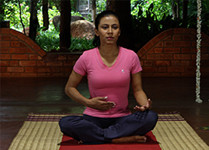
Kapal Bhati pranayama
This pranayama improves blood circulation
and energizes the nervous system. It also clears the nadi or energy channels in the body, thus aiding in
better functioning of the body.
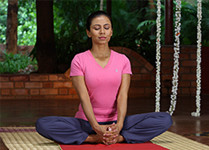
Baddhakonasana
If a stiff hip is your pet peeve, this asana will
sort you out just right. Apart from being a good
stretch for inner thighs and knees, this asana also
improves flexibility in the groin and hip region.
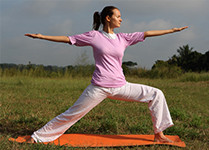
Veerbhadrasana
Strengthening of the lower back and all the
four limbs, thus preventing you from injury or strain
is what this asana does best. It also releases stress
from the shoulders and improves stamina.
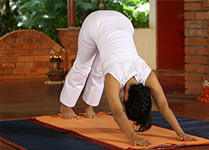
Adho Mukha Svanasana
This is an ideal asana for lengthening the
spine, strengthening the chest muscles and
expanding the lung capacity. This inverted pose also
helps in increasing the flow of blood to the
brain, this keeping headache, insomnia and fatigue
at bay. It also strengthens the arms, shoulders, legs
and feet – something that every swimmer needs.
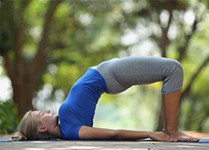
Setu Bandhasana
The Setu Bandhasana relieves the tired back instantly. It also stretches the chest, neck and spine while strengthening the back muscles. Further, this asana opens the lungs and alleviates anxiety, stress and depression.
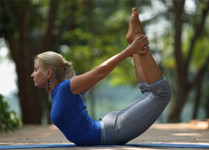
Dhanurasana
Dhanurasana is an excellent back-
strengthening asana that also tones muscles of all
the four limbs. It also makes the back suppler
and opens the chest, neck and shoulders.
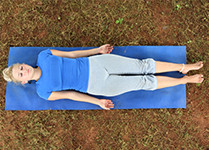
Yoga Nidra
This asana helps calm and harmonize the
mind, while bringing deep rest to the body. Being
a restorative asana, it can be practiced before
and after your swimming session.
Swimming is perhaps one of those few times when you are completely cut off from the outer world and hear absolutely nothing. The brief tranquility that you experience calms your mind, releases stress and uplifts your mood. This restful experience can be further lengthened by practicing meditation that will help improve focus and break your boundaries, all in the state of perfect awareness.
Ancient scriptures have put a lot of importance on proper sleep and food habits. Medicines, painkillers and exercises are just add-ons to the body’s actual healing capability. Medicines cannot match the effect of a sound 8-hour of sleep. Similarly, it is important to provide the body with healthy and nutritious food. Swimming is a physically demanding exercise and must be compensated with fresh wholesome food. Eating homemade food keeps you safe from diseases and keeps you healthy.
Your lung’s breathing capacity can get hampered if you indulge and thus drains your energy faster. Pranayamas improve your breathing capacity by sending more oxygen to the brain, thus keeping you charged and allowing you to swim for longer durations.
Overall, yoga, meditation and pranayama equip you with a calm mind, better stamina, and a supple body – all that you’ll need to keep away from physical or mental distress.





